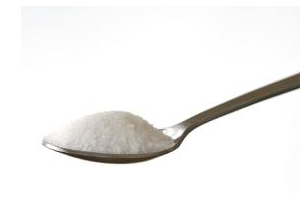Protect Your Teeth with These Sugar Substitutes
Posted on 10/15/2025 by Singing River Dentistry - Athens |
 Everyone loves a sweet treat now and then. But the sugar in candy, cookies, and other sugary snacks can take a toll on your teeth. Over time, sugar can damage tooth enamel and cause cavities. Everyone loves a sweet treat now and then. But the sugar in candy, cookies, and other sugary snacks can take a toll on your teeth. Over time, sugar can damage tooth enamel and cause cavities.
Fortunately, there are many ways to enjoy sweet treats without putting your teeth at risk. Sugar substitutes can be a great option for people who want to reduce their sugar intake without sacrificing taste. They can be an especially beneficial option for those with specific dietary needs, such as diabetes.
In this article, we'll discuss several different types of sugar substitutes and how they can help you protect your teeth. We'll also discuss the importance of oral care and prevention dentistry in maintaining good oral health.
Types of Sugar Substitutes
There are many different types of sugar substitutes available on the market, each with its own unique properties and benefits. Let's examine some of the most popular options:
| • |
Xylitol: This sugar alcohol is derived from birch trees and has a sweetness similar to sugar. Xylitol is actually good for your teeth! It has been shown to reduce the risk of cavities by up to 80%. However, it's important to note that xylitol can have a laxative effect in large doses. |
| • |
Erythritol: Another sugar alcohol, erythritol is naturally found in small amounts in fruits and vegetables. It has a slightly less sweet taste than sugar, but it does not cause tooth decay. Erythritol is also calorie-free, making it a good option for people who are watching their weight. |
| • |
Stevia: Stevia is a natural sweetener derived from the stevia plant. It has a very sweet taste, and it does not cause tooth decay. However, some people find that stevia has a slightly bitter aftertaste. |
| • |
Sucralose: This artificial sweetener is made from sugar but has been modified so that it does not cause tooth decay. Sucralose is very sweet, and it has no calories. However, some people find that sucralose has a slightly artificial taste. |
Additional Factors in Your Oral Care Routine
While sugar substitutes can be a great way to reduce your sugar intake, they are not a magic bullet for preventing tooth decay. It's still important to brush your teeth twice a day with a fluoride toothpaste, floss daily, and see your dentist regularly for checkups and cleanings.
Here are some additional tips for keeping your teeth healthy:
| • |
Limit your intake of sugary foods and drinks. This includes candy, cookies, soda, and juice. |
| • |
Drink plenty of water. Water helps to keep your mouth clean and wash away food particles. |
| • |
Eat a healthy diet. A healthy diet is important for overall health, including oral health. |
| • |
See your dentist regularly. Regular dental checkups and cleanings are important for catching and treating problems early. |
Conclusion
Sugar substitutes can be a useful tool for reducing your sugar intake and protecting your teeth from decay. However, it's important to use them in conjunction with a comprehensive oral care routine that includes brushing, flossing, and regular dental visits. Remember, prevention is always the best approach when it comes to maintaining good oral health.
|
|
